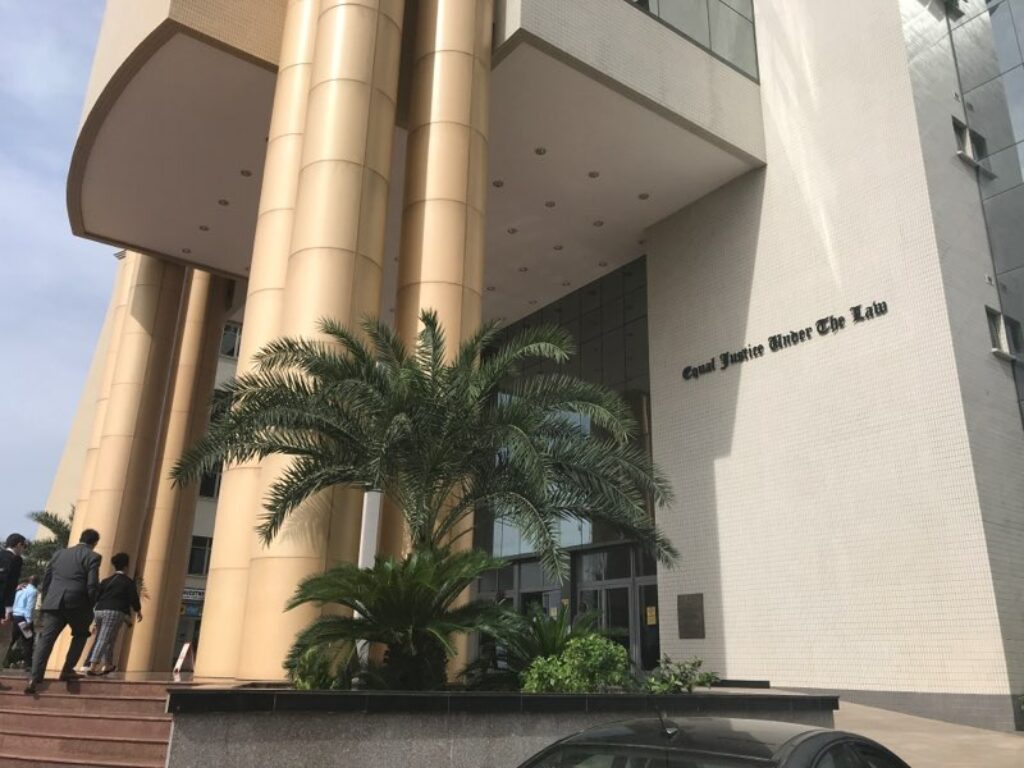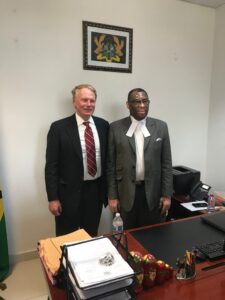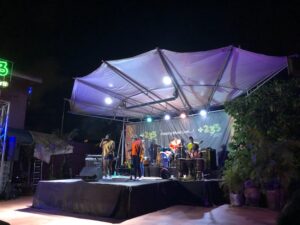Campbell Law in Ghana: Students visit Ghanaian High Court, Kofi Annan International Peacekeeper Training Center

ACCRA, GHANA — On the second day of our program, the group’s focus shifted to learning about the judicial system of Ghana. Bright and early, the delegation from the University of Cape Coast took us to the Ghanaian High Court. Somewhat of a misnomer, the High Court is analogous to the Superior Courts in North Carolina in that the High Court hears appeals from a lower court, which is in turn analogous to North Carolina’s District Court. The Ghanaian High Court has discrete courts for each type of case before it — criminal, commercial, financial, matrimonial/divorce and land (to name just a few). While at the Court, we were lucky to enough to be welcomed into Justice Charles Baiden’s chambers with an offer of water — a Ghanaian tradition signifying welcome — where we discussed cases we just witnessed and the structure of the courts.

After a lunch of jollof rice and fried fish in the High Court’s cafeteria, the group made its way to the Kofi Annan International Peacekeeper Training Center. KAIPTC, as it’s known, is a fascinating organization that is equal parts thinktank, research center and institution of higher education. Named after the United Nation’s seventh Secretary General, Kofi Annan, KAIPTC prepares students for careers in the United Nations security services and other similar careers, while also offering policy advice and consulting to various nations around the world.
The night of our second full day in Ghana saw the group engage in meaningful discussion led by two students — MC Skinner and Halee Morris-Jenkins. These two students asked us to explore and reflect upon times in our lives where we noticed differences — both racial and socioeconomic — between ourselves and the people around us. Professor Kevin Lee challenged us to accept that the questions posed by our discussion could not be easily answered. Both he and Professor Tuneen Chisolm charged us to focus not on what divides us, but rather on what unites us as humans.
In the spirit of this exhortation, the group finished off the night by diving into the culture of Accra. A group of students and professors went to +233, a music venue in Accra, and danced and listened to a live band of mixed genre but immense talent. The all-female band featured both Western and African instruments — a fitting simulacrum for that night’s discussion. In the words of Professor Lee, “the things that unite us are more real than the things that divide us.”

For more photos of the law school’s inaugural study abroad experience in Ghana, visit Campbell Law’s Facebook page.
